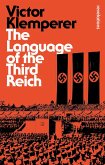It was a bold, ambitious and wildly arrogant idea: extending the reach of communism into space. Spurred on by the defeat of Hitler and the competitive rivalry with the United States, the Soviet space programme saw a frenetic surge of scientific activity focused on the objective of demonstrating Communist mastery beyond the confines of the Earth. In order to create the optimally standardized bodies that cosmonauts would require, top secret military laboratories were set up in 1970s East Germany. The New Man - the modern colonist of space - was intensively trained for the purpose of surviving years of weightlessness in outer space. Experiments were carried out in prisons, hospitals and army barracks with the aim of creating the perfect body: self-sufficient and able to endure extreme conditions for as long as possible. In order to exert dominance over space, it was first necessary to exert total control over those who were being trained to conquer it. Ines Geipel unravels this largely unknown and extraordinary history by delving into East German military records and talking to those who bear the scars of this state-inflicted trauma. Some of the older scientists conducting experiments had already served under the Nazi regime; others threw themselves into collaborating with the Stasi via the military research programme in order to avoid dealing with the war's emotional legacy. Written like a thriller and infused with empathy from someone who had herself experienced the debilitating effects of state-administered doping programmes in the former GDR, this book exposes some of the most disturbing episodes in Germany's recent past.
Hinweis: Dieser Artikel kann nur an eine deutsche Lieferadresse ausgeliefert werden.
Hinweis: Dieser Artikel kann nur an eine deutsche Lieferadresse ausgeliefert werden.








